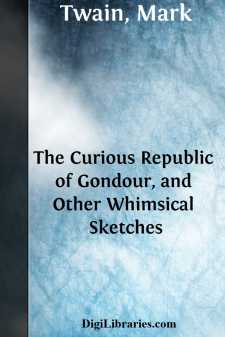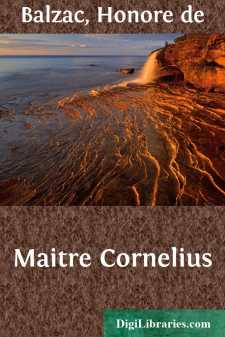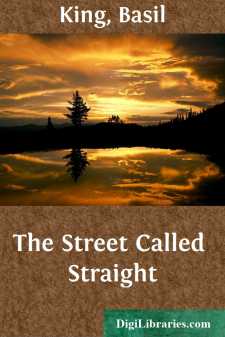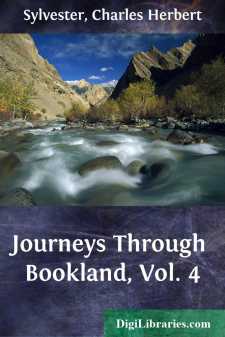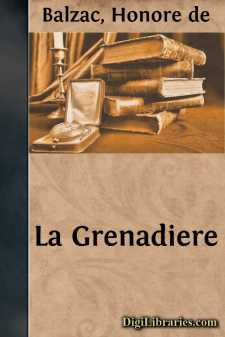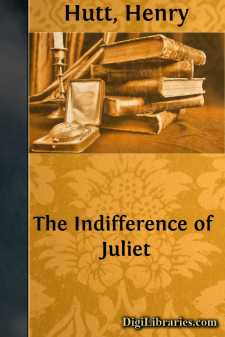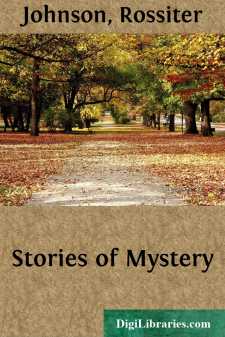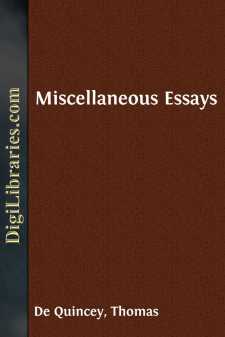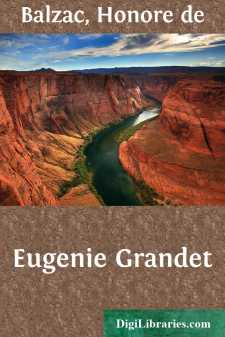Literary Collections
- American 84
- Ancient, Classical & Medieval 14
- Asian 1
- Australian & Oceanian 1
- Canadian 55
- Continental European 121
- English, Irish, Scottish, Welsh 179
- Essays 160
- General 24
- Letters 46
- Middle Eastern 1
Literary Collections Books
Sort by:
by:
John Dryden
AMBOYNA. The tragedy of Amboyna, as it was justly termed by the English of the seventeenth century, was of itself too dreadful to be heightened by the mimic horrors of the stage. The reader may be reminded, that by three several treaties in the years 1613, 1615, and 1619, it was agreed betwixt England and Holland, that the English should enjoy one-third of the trade of the spice islands. For this...
more...
by:
Mark Twain
THE CURIOUS REPUBLIC OF GONDOUR As soon as I had learned to speak the language a little, I became greatly interested in the people and the system of government. I found that the nation had at first tried universal suffrage pure and simple, but had thrown that form aside because the result was not satisfactory. It had seemed to deliver all power into the hands of the ignorant and non-tax-paying classes;...
more...
by:
Honore de Balzac
CHAPTER I. A CHURCH SCENE OF THE FIFTEENTH CENTURY In 1479, on All Saints' day, the moment at which this history begins, vespers were ending in the cathedral of Tours. The archbishop Helie de Bourdeilles was rising from his seat to give the benediction himself to the faithful. The sermon had been long; darkness had fallen during the service, and in certain parts of the noble church (the towers of...
more...
by:
Basil King
THE STREET CALLED STRAIGHT s a matter of fact, Davenant was under no illusions concerning the quality of the welcome his hostess was according him, though he found a certain pleasure in being once more in her company. It was not a keen pleasure, but neither was it an embarrassing one; it was exactly what he supposed it would be in case they ever met again—a blending on his part of curiosity,...
more...
BETTER THAN GOLD Better than grandeur, better than gold, Than rank and titles a thousand fold, Is a healthy body, a mind at ease, And simple pleasures' that always please. A heart that can feel for another's woe, And share his joys with a genial glow, With sympathies large enough to enfold All men as brothers, is better than gold. Better than gold is a conscience...
more...
by:
Honore de Balzac
LA GRENADIERE La Grenadiere is a little house on the right bank of the Loire as you go down stream, about a mile below the bridge of Tours. At this point the river, broad as a lake, and covered with scattered green islands, flows between two lines of cliff, where country houses built uniformly of white stone stand among their gardens and vineyards. The finest fruit in the world ripens there with a...
more...
by:
Henry Hutt
I.—An Audacious Proposition Anthony Robeson glanced about him in a satisfied way at the shaded nook under the low-hanging boughs into which he had guided the boat. Then he drew in his oars and let the little craft drift. “This is an ideal spot,” said he, looking into his friend’s face, “in which to tell you a rather interesting piece of news.” “Oh, fine!” cried his friend, settling...
more...
by:
Rossiter Johnson
THE GHOST. BY WILLIAM D. O'CONNOR. t the West End of Boston is a quarter of some fifty streets, more or less, commonly known as Beacon Hill. It is a rich and respectable quarter, sacred to the abodes of Our First Citizens. The very houses have become sentient of its prevailing character of riches and respectability; and, when the twilight deepens on the place, or at high noon, if your vision is...
more...
ON THE KNOCKING AT THE GATE, IN MACBETH. From my boyish days I had always felt a great perplexity on one point in Macbeth. It was this: the knocking at the gate, which succeeds to the murder of Duncan, produced to my feelings an effect for which I never could account. The effect was, that it reflected back upon the murder a peculiar awfulness and a depth of solemnity; yet, however obstinately I...
more...
by:
Honore de Balzac
I There are houses in certain provincial towns whose aspect inspires melancholy, akin to that called forth by sombre cloisters, dreary moorlands, or the desolation of ruins. Within these houses there is, perhaps, the silence of the cloister, the barrenness of moors, the skeleton of ruins; life and movement are so stagnant there that a stranger might think them uninhabited, were it not that he...
more...



